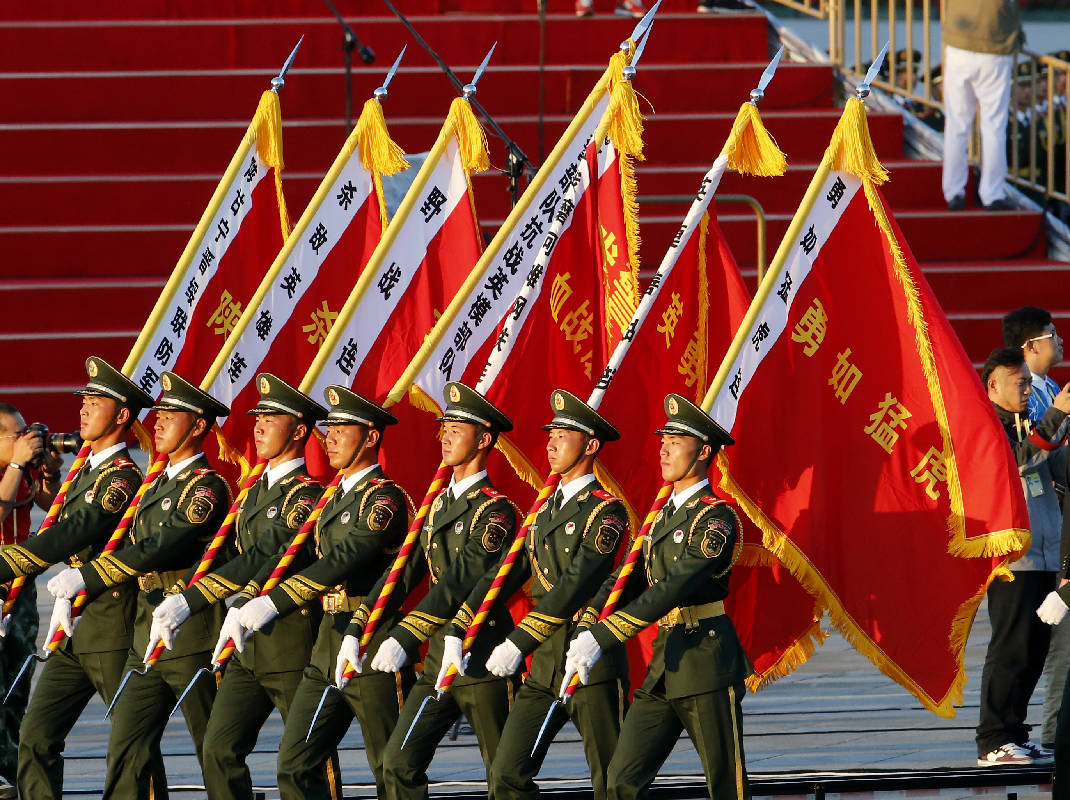Thucydides’ history is the record of man’s interactions with other men, where women are only considered when they are obstacles or dividends and are otherwise deemed irrelevant. The Peloponnesian War therefore establishes a form of historiographical patriarchy by representing history purely through a male perspective.
Working Backwards from Berlin to the Bocage: Coalescing Airpower Application in the European Theater of Operations in 1944
Proponents of strategic airpower argued endlessly with those who trusted in other ways to win. Yet, the resulting application demonstrated a far more complex and unified approach to airpower than envisioned by the inter-war airmen theorizing at the Air Corps Tactical School, who resolutely set out to determine how to bring Germany to its knees.
Dear Jimmy
#Reviewing The China Mission
The China Mission is an important book for those seeking to understand China or, more realistically, grasp the near-impossibility of understanding the complexities of China, in the past or present. Like other recent scholarship from the Council on Foreign Relations, The China Mission throws cold water on any China expert who makes definitive claims about China or the Chinese; China remains truly foreign to most Americans.
The U.S.-China Rivalry as Seen in the Cold War’s Rear-View Mirror
As the U.S.-China rivalry intensifies and tensions grow, references have increasingly been drawn between it and the other great geostrategic contest of the post-war era—the Cold War. While it might still be premature to speak of the current U.S.-Chinese rivalry and the half-century spanning Cold War in the same breath, it is not hard to see why the present situation is so evocative of its epoch-defining predecessor.
The Continuation of Politics by Other Means: France in the Second World War
General Charles de Gaulle and Free France, through their military and political acuteness, along with their relentless perseverance, managed to gain a seat amongst the victors of the war. It was done mostly thanks to the use of the military tools at their disposal—including intelligence—that were directly instrumentalized to obtain concrete political gains.
Grand Strategy in the Age of Climate Change: A Theory of Emergent Grand Strategy
Given grand strategy’s concern with advancing overall interests, typically in the context of a significant threat, there is a pressing need for articulating a new sensibility about grand strategy that deals seriously with the climate threat. In particular, as I show in this essay, this new sensibility must account for the possibility of new actors having the capacity as well as the interest to act in a grand strategic fashion and to do so in a way that challenges the conventional wisdom about the centralized, coordinated nature of grand strategic action.
#Reviewing The Bridge to Airpower
What books stand out in the field of logistics? Ask any officer or senior enlisted leader who has graduated from a professional military education course and they can tell you two things: a book about strategy they liked and many they did not. Sun Tzu, Clausewitz, and even the much-maligned but desperately needed for his time Jomini, all fit the mold. Ask the same crowd to suggest the best book on military logistics and the answer is likely to be silence. Thus, in odd juxtaposition, logistics is so important in war that the most popular quotation about logistics is apocryphal and the vast majority of military leaders could not name one book on the subject.
Notes from a Sun Tzu Skeptic
The mischaracterization of Sun Tzu as a metonymy for all Chinese strategic wisdom, past, present, and future, grossly distorts the text’s importance and provides unrealistic expectations of what The Art of War can reasonably offer the modern strategist. Moreover, it leads to a myopic view of current Chinese strategic thinking.
Small State Strategic Thinking: The Case of the Netherlands
The broadsides on America’s strategy in Iraq and Afghanistan are persistent given the indubitable lack of progress in both theatres for almost two decades. As both wars continue, not only are global powers like the United States still involved, but many small states remain engaged. Each keeps contributing to, and participating in, these ongoing conflicts. While the criticism of the American strategic effort is sweeping, and may be considered justified, this critique spills over as collateral to the small allied states who continue to contribute to both the Iraq and Afghanistan wars.
DIME without the “M” is DIE: A Case for Conventional Military Power in Modern Strategy Discourse
Fear of great power parity creates panic among the strategy community that the United States is unable to respond to flashpoints of crisis across the globe, such as the Russian take over of Crimea or Chinese actions in the South China Sea. Supposedly, American hesitancy rests on an inability to adequately strategize. To overcome this shortcoming, experts want the United States to be more like its opponents, adopting the teachings of Sun Tzu and winning wars before wars are fought via the use of diplomacy, intelligence collection, and economic power, thereby marginalizing the use of military force. This insight means changing the calculus among these four instruments of national power, inviting disaster since one invites reconfiguring DIME without the “M” as DIE.
#Reviewing To Master the Boundless Sea
Ultimately, Smith’s book will accommodate both scholars and seekers of American naval heritage. Its reception among historians proves this work as a major contribution to many fields and the broader understanding of the 19th century naval history that led to the American empire. One can appreciate the title To Master the Boundless Sea as an endless endeavor to challenge ourselves to strive and understand the immeasurable depths of the seas and the relationship between knowledge and the environment in which we live.
Little Sparta’s Big Ambitions: The Emirati Military Comes of Age
The United Arab Emirates provides a 21st century case-study in how to build a national defense capability. Dubbed “Little Sparta” by former Secretary of Defense Jim Mattis, its growing military presence in the Middle East and Africa are the result of years of dedicated investment and demonstrate ambitions surpassing the federation’s short history.
The Persistence of Memory: U.S. Foreign Policy Strategy for Venezuela Through the Clinton and Bush Administrations
The U.S. should take heed to understand how qualities of temperance, diplomatic tact, and moderation can yield far more productive relationships in Latin America, but if national U.S. consensus chooses to eschew the aforementioned qualities for more belligerent ones, such as a backing a coup, then the U.S. should understand how Latin American historic memory magnifies the consequences and execute a decisive strategy around this understanding.
#Reviewing The Girls Next Door
Guiding the Unknown: Ethical Oversight of Artificial Intelligence for Autonomous Weapon Capabilities
It is not news that autonomous weapons capabilities powered by artificial intelligence are evolving fast. Many scholars and strategists foresee this new technology changing the character of war and challenging existing frameworks for thinking about just or ethical war in ways the U.S. national security community is not yet prepared to handle. Until U.S. policy makers know enough to draw realistic ethical boundaries, prudent U.S. policy makers are likely to focus on measures that balance competing obligations and pressures during this ambiguous development phase.
Towards a Better U.S. Space Strategy: Addressing the Strategy Mismatch
To develop a fulsome space strategy, U.S. strategists need to acknowledge that their counterparts in other countries, especially within China, do not necessarily think about deterrence and conflict in the same way. To address the problem, a viable space strategy should address Chinese long-term strategy, and in particular, U.S. space strategy should emphasize deterrence by denial, while addressing provocative actions that seek to erode U.S. strategic advantage.
Technology, Military Genius, and the Improbable Victory
The true revolution of technology-enabled warfare will only happen through empowering the tactical edge to lead technical development throughout the entire country. The revolution that will allow the United States to unequivocally regain technological dominance on the world stage cannot happen with timid, localized, politically correct actions that only generate a few talking points. It can only happen with bold, sweeping actions that put the nation’s warfighters at center stage.





















